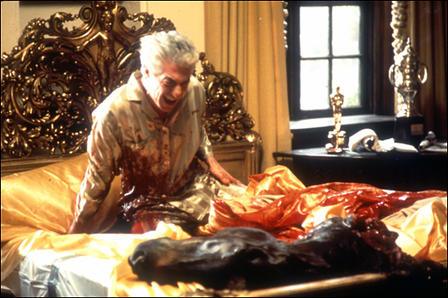- Joined
- Jan 5, 2009
- Messages
- 2,408

(snip the rest)
Thanks for a very candid answer. So basically you had the rug yanked out from under you by Feargus. That's some seriously bad management. If it happened eight years into the exercise though it does seem like things had gone awry much earlier, manifested as that fan favourite, "lack of communication." Did you ever get along well with him or the other founders? If this is how things work at Obsidian I don't blame you at all for leaving; if anything it's remarkable you stuck it out as long as you did.
But I do think you're being too hard on Eric for not being able to change things where you also failed.
One thing that strikes me about your answer is that it sounds really top down. Expectations for roles are crucial of course -- that's what a role is, at the heart of it; a set of expectations you need to live up to; without expectations it's just an empty title.
My experience with getting process changes to bite though is that it works really badly from the top down. I always start with a single scrum team: four to ten people collaborating on some particular, concrete thing. We establish who's going to be the scrum master, work out the basic nitty-gritty of daily work -- coding standards, how to use the process tools like source control and issue tracking to stay in sync and up to date with what everybody's doing, whether and how we're going to apply code reviews to enforce the standards, what exactly is going to happen in the scrum and how long it's going to take -- and then get that to actually work on the ground, so people just do it without thinking about it. Once that foundation is laid, we can move up to the sprint level and establish what the roles at that level are supposed to do. And once that's working, up another level, however many levels are needed. In my experience it really doesn't do much to establish the responsibilities of a product owner, lead designer, QA lead, or any of the other slots that need filling until you've got that fundamental thing running -- and once you do, defining those roles becomes pretty easy; it doesn't quite happen by itself but it's more of a gardening/steering thing than drawing up boxes.
Moreover, this way a lot -- not all, mind, but a lot! -- of the hierarchy just withers away. The scrum teams will be able to resolve a lot of problems and conflicts before they even become issues, without having to go to a superior to make a call on it. And it's specifically this kind of structured yet flexible environment that brings out the best in people, makes them do more than just the minimum. Conversely, a top-down management culture will get people just to tick the boxes -- at least people who aren't exceptionally driven internally, and those people tend not to thrive in hierarchical, top-down environments unless they happen to sit at or near the top of the totem pole.
First off, I'm glad you said Scrum and not Agile development.
I don’t blame Eric for not being able to change any of these things – I do think he provided guidance to a lot of new Eternity writers, and we did work to accommodate him after New Vegas.
But before you think I’m being overly magnanimous, Eric absolutely drove away a lot of talented writers (esp. John Gonzalez – Shadow over Mordor, Horizon Zero Dawn), although John likely wouldn’t ever admit to the fact that Eric hated him; also, we were forced to isolate Eric from John’s Lead Writer responsibilities (which was a failure on our part, but I wasn’t in charge of New Vegas, which had a lot of inner development conflicts across the board).
Even more after John left, we actually changed our hiring procedure to cater to Eric on Eternity, since we knew if he didn’t approve of a writer, you might as well set a torch any writer that worked with him.
Overall, I thought John was a great writer.
When I talked to Eric about the perspectives on John (since no one else had), his solution was, “let’s just divide New Vegas tasks so John and I never have to interact with each other,” which was like, that moment where all the sound evaporates from the room and all you see is the other person’s lips moving, but you can’t bring yourself to acknowledge what they’re saying. I mean, the person you're denouncing - he’s your Lead. He’s a good writer. So are you. Try to meet in the middle. But – no, that was not to be.
Despite the situation, John turned in his notice (which also broke me a little more) and went on to bigger and better things – Mordor, Horizon: Zero Dawn. Kudos to him, but a huge loss for Obsidian in writing talent (much like George Ziets and Travis Stout). All could have been prevented, imo.
FFS man! Stop burning bridges in public!
This cannot possibly be viewed in a positive light by any prospective employer. Get off the internet for the day!
Last edited:


































 ). but now that you are free, u have some hope.
). but now that you are free, u have some hope.








